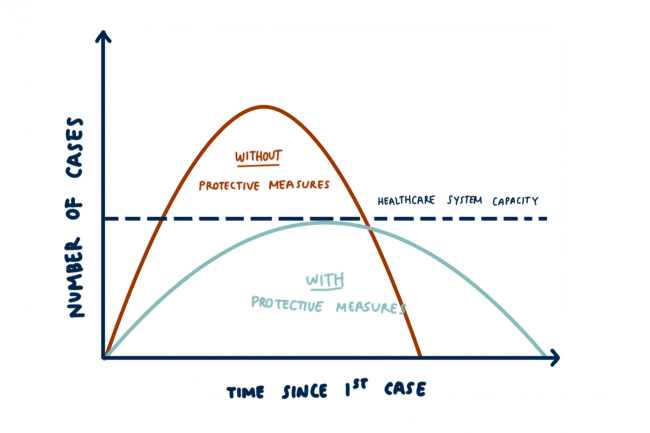Entering just the third month of 2020, humanity is currently facing a global COVID-19 pandemic. Although considered relatively not too fatal, the novel coronavirus that was first identified in an outbreak in Wuhan, China spreads quite fast. So far, the disease has affected 196 countries and territories, with a total of more than 500,000 cases.Â
How it spreads
Experts have theorised that the virus first sourced from animals, but now has spread from an individual to another. It is thought to spread between people who are in close contact within one another, specifically at a distance of about 2 meters. The virus travels by means of respiratory droplets when an infected person coughs or sneezes. Other possibilities of someone getting infected can be caused by touching objects and surfaces containing the coronavirus and then proceeding to touch their mouth and nose. Some theories about the virus being airborne have also emerged.Â
Symptoms and complications
Individuals infected with the disease will show symptoms of fever, coughing, trouble breathing, muscle pain, and also fatigue. The novel coronavirus has caused severe complications such as pneumonia in lungs and failure in multiple organs and even systems, so it is best to seek immediate help when early signs of the disease begin to show. Apart from that, people infected by the disease must stay home and follow the existing system managed by local government and medical teams. There are currently no vaccines and specific treatments available to prevent getting COVID-19. However, there are patients who have recovered from the viral disease. Drugs and medical help that help relieve symptoms are available, but are getting scarce in amount with the rise of case numbers.Â
What to do
As global citizens, it is also our duty to help solve this pandemic together. Despite having no cure yet, all of us must take our part to prevent this disease from spreading even further. By simply staying home and social distancing, we are one step closer to solving this issue. Therefore, the peak number of infections in a certain period decreases, putting less burden on the available healthcare systems. This is the general idea of flattening the curve. Thus, hospitals will not be overwhelmed with sick patients and the existing sick patients will receive proper treatment.Â

Flattening the curve
Staying home might get rough no matter if you live alone or have company. Quarantine can affect the mental health of anyone, so maintaining self awareness and composure is necessary during times like this. Allow yourself to have some me-time and spend your free time discovering new things you haven’t done before. Here is our little guide to stay home during these critical times, and don’t forget to stay safe!




